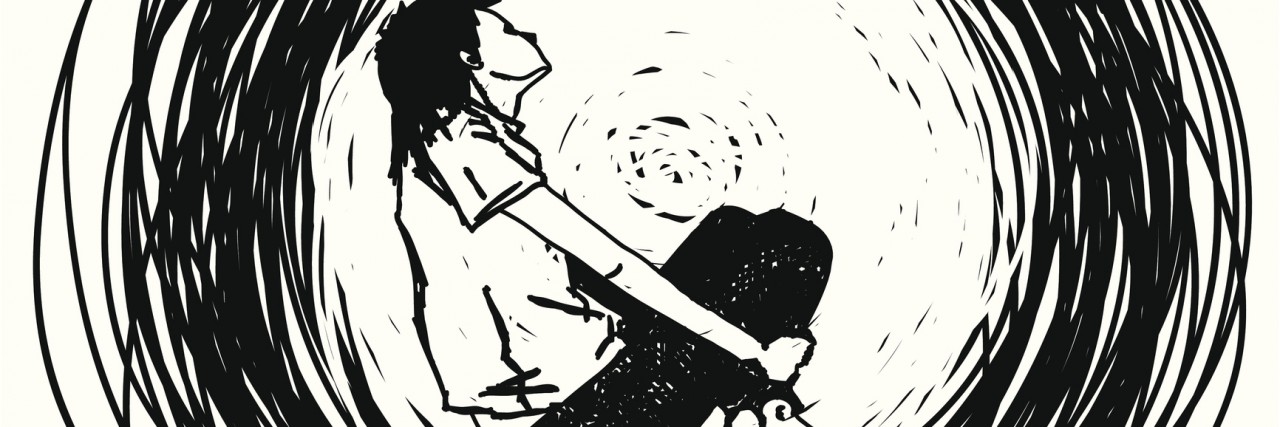15 People Answer What It's Really Like to Live With a Body-Focused Repetitive Behavior
Editor’s note: If you struggle with a body-focused repetitive behavior, the following post could be potentially triggering. You can find resources at The TLC Foundation for Body-Focused Repetitive Behaviors and the Canadian BFRB Support Network.
Recently, we asked our followers what it feels like to live with a body-focused repetitive behavior (BFRB). There are many kind of BFRBs, but we received a wave of answers from people who live with dermatillomania (skin-picking disorder) and trichotillomania (hair-pulling disorder), who candidly shared what it means for them to live with these disorders every day.
Although they have gained more exposure across social media, dermatillomania and trichotillomania are still largely misunderstood and are sometimes looked at too clinically. But the reality of living with these disorders is that they can have a very profound impact on the people who live with them. Asking our followers what it feels like to live with a BFRB gives us a glimpse into that impact.
Here’s what they had to say:
1. “I often question whether I have a real problem or not. It’s not a very well known disorder.” — Meghan Z.
2. “It feels like I am in an abusive relationship with my disorder. It manipulates and controls me by convincing me it knows what is best. It makes promises it can’t keep.” — Jacqueline K.
3. “It feels like never being happy with yourself or comfortable in your own skin.” — Anastasia S.
4. “Living with a BFRB is very frustrating, embarrassing and stressful. You want to stop the behavior and you work hard to keep from doing it, but it’s like your brain is programmed to keep doing it. It can be very exhausting, especially when it keeps you awake at night and disturbs your sleep.” — Jennifer J.
5. “I feel like no one ever sees me. Either they see the missing hair or they see me in a wig. Never who I really am. I feel like I walk around without anyone understanding or seeing me as I really am because of this disorder.” — Kala B.
6. “It feels like not even letting your closest friends see you until you’ve put cover up on. It feels like masking pain… It feels like I’m ruining my body. It feels lonely.” — Cat R.
7. “I [sit] in front of a mirror with tears streaming down my face, telling myself not to [do] this again. But knowing until I’m a bloody mess, literally and figuratively, I can’t pull myself away.” — Nikki C.
8. “It feels like the ultimate loss of control. Loss of control over my own body. How it feels, how it looks, what it does to itself. If I can’t control these things, what can I control? It feels like helplessness, hopelessness and unworthiness all tied together into something others tell me I can just stop doing.” — Nikki G.
9. “It feels like constantly living under a mask. You feel like you can’t really show who you are. You’ll wear whatever clothes, cake on whatever makeup, put on multiple Band-Aids to cover up all the wounds you’ve dug into. It feels like you have to conceal yourself constantly.” — Karley S.
10. “I don’t have hobbies. My skin is my hobby. Constantly reading, researching and trying to figure out why I do this, how can I stop and what is wrong to make me want to pick and pick and pick.” — Lauren D.
11. “It is like wearing an outfit you think is ugly and uncomfortable every single day and having to pretend you like it. It’s the feeling of needing to justify or explain your appearance every time someone looks at you for more than a second. It’s seeing a wonderful life for yourself without your disorder, but being too [immobilized] by fear of rejection, judgment, failure and loss of control to pursue the things that would help you get there.” — Dawn K.
12. “It’s a monster that shows its ugliness at the worst moments and no matter how hard I try, I can’t tame it.” — Johanna G.
13. “Living with a BFRB can feel isolating, embarrassing and stressful — especially if you are not in contact with others who have BFRBs. Community support and connection [are] key to helping reduce the shame surrounding these little-known mental health afflictions.” — Angela H.
14. “For me, how [it feels to live] with BFRBs changes often. Sometimes it feels devastating, lonely, hopeless. Sometimes it feels like there’s nothing wrong. Other times it’s somewhere on the middle of that spectrum.” — Leontien H.
15. “Now, it feels totally normal. I’ve made peace with the fact I want to pull out my own hair all the time and am completely unapologetic about it.” — Katy T.
We want to hear your story. Become a Mighty contributor here.
Thinkstock photo via yezik.

